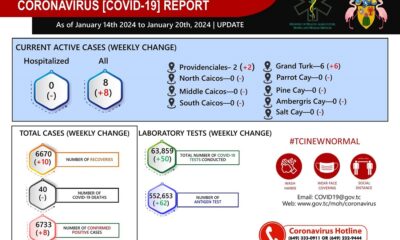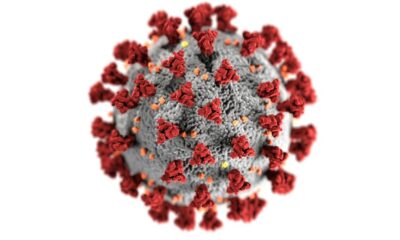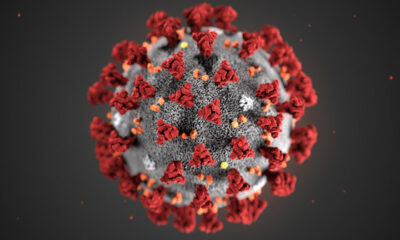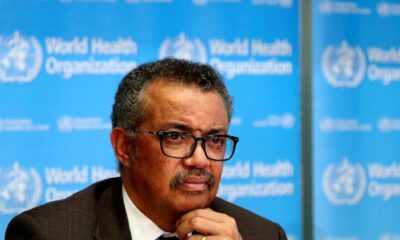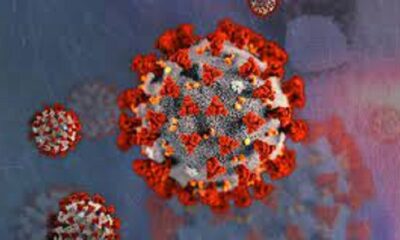#TurksandCaicos, February 6, 2021 – Skillful negotiations, a willingness to safeguard its vulnerable territories and remarkable roll out of the first batch of the UK-gifted Covid-19 vaccine have brought the Turks and Caicos Islands even more good fortune; an additional 23,400 doses of the Pfizer/BioNTech vaccine courtesy of the United Kingdom.
“Again, that is without cost to TCI. That will allow us to
vaccinate 40% of the population by May and that will start to make us one of
the safest places to live, let alone one of the safest tourist destinations, in
the world. Please keep registering on the portal,” said the Governor in a media
statement issued on Friday.
“At
15%, we are now on course of being one of the world leaders in terms of the
percentage of our population being vaccinated, particularly taking into
account we have already started with second inoculations. We will receive
double the previous amount of vaccines during week beginning 22 February; that
is 23,400 doses.”
This
week, Turks and Caicos achieved a tremendous milestone. All of the first doses of the vaccine were
administered; exceeding expectations.
The roll out included all islands and will exhaust the first 9,750
vaccines well ahead of the March 31 expiry date of the first batch.
“Looking
back we were initially uncertain if we could use all the vaccine by the end of
March when the ‘use by date’ expired; in fact we achieved this goal by the end
of January. The partnership with the private sector has been instrumental in
this, has worked extremely well, and the delivery at the hospitals has, we believe,
been first class. TCI have also rolled out, for the first time, an Electronic
Immunization records (EIR) System to the benefit of both public and private
medical sectors; so new ways of working are coming on stream too.
The
first phase of the vaccination programme has gone extremely well. The
Team tasked to deliver this have beaten every target that was set in terms of
engagement, the speed of delivery, our stewardship of the vaccine and our
reach. So long as residents volunteered the Team prioritised: our senior
citizens; those with underlying conditions and those on the front line. We have
also been able to touch every Island and every age group. This has
demonstrated we can use the Pfizer vaccine throughout the archipelago.”
The
team was led by co-chairs, Her Excellency Anya Williams, Deputy Governor and
Hon Sharlene Robinson, Premier with the public awareness marshalled by Dr.
Virignia Clerveaux, Director of the Department of Disaster Management and
Emergencies.
“The
public information campaign seems to have helped and now there is momentum,
amongst the population, with most of the major questions answered, and much
nonsense on social media dispelled, we will continue to refine our engagement
towards groups who are reluctant or particularly vulnerable. Many Pastors have
been diligent in their engagement with us, informing themselves and through
them informing others.”
Hindering
skepticism in the territory, has waned; helped by the record levels of Covid-19
infections, three deaths so far in 2021 and a string of “myth-busting” meetings
where country leaders and medical professionals addressed various groups.
“We
respect everyone’s view, and their right to choose, but equally we don’t want
anyone left behind because they either lacked the information they needed, or
in some way feared access to a vaccine that we believe is their right to have.”
The territory has a unique demographic; the majority of adults are expatriate workers and as legal residents, many of the work permit holders were queued up in strong numbers for the free vaccine. The governor said things have changed dramatically.
“Towards
the end of this first vaccination period it was extremely encouraging to see
more and more Turks Islanders coming forward. As of today (Thursday 5th February)
we have vaccinated 6,114 persons (with a first dose); by census that is close
to 15% of our population which makes TCI a world leader.”
Any
question about the Governor’s sincerity in seeing residents protected by the
vaccine could have been shelved when he and his wife Mandy were first to get
the jab; but a tragic event further dismisses the notion that the governor is
not sincerely supportive of the vaccine as the way to security and safety.
Millions
in countries like the United Kingdom are standing in an unfathomably long line
for their shots; Mr. John Dakin, the
governor’s father, was one of them. The
elder Dakin died in January 2021 to the coronavirus while resident in a care
home in the UK.
“Those
who have yet to receive the vaccine, and wish to, can usefully register on the
portal. If you do, we will get to you. If you know someone who needs help
in accessing the Portal, please help them. Our aim is to vaccinate every
resident in TCI, who wishes to be vaccinated, and our goal is to reach herd
immunity as soon as we can. Our aspiration of being a world leader, and one of
the safest destinations in the world once our population is vaccinated, is no
longer just an aspiration but a reality – should you, TCI’s residents, wish it
to be so. If you want to be part of this future register on www.covidvaccineregistration.gov.tc
This
is over twice the amount we received last time and it will allow us to fully
vaccinate more than 11,000 further residents. When we achieve that – which we
will – we will have provided the vaccine (both doses) to 40% of our
population. We hope to have done that by May.”
The
vaccine should arrive the week of February 22.
The vaccine will continue to be free and voluntary.
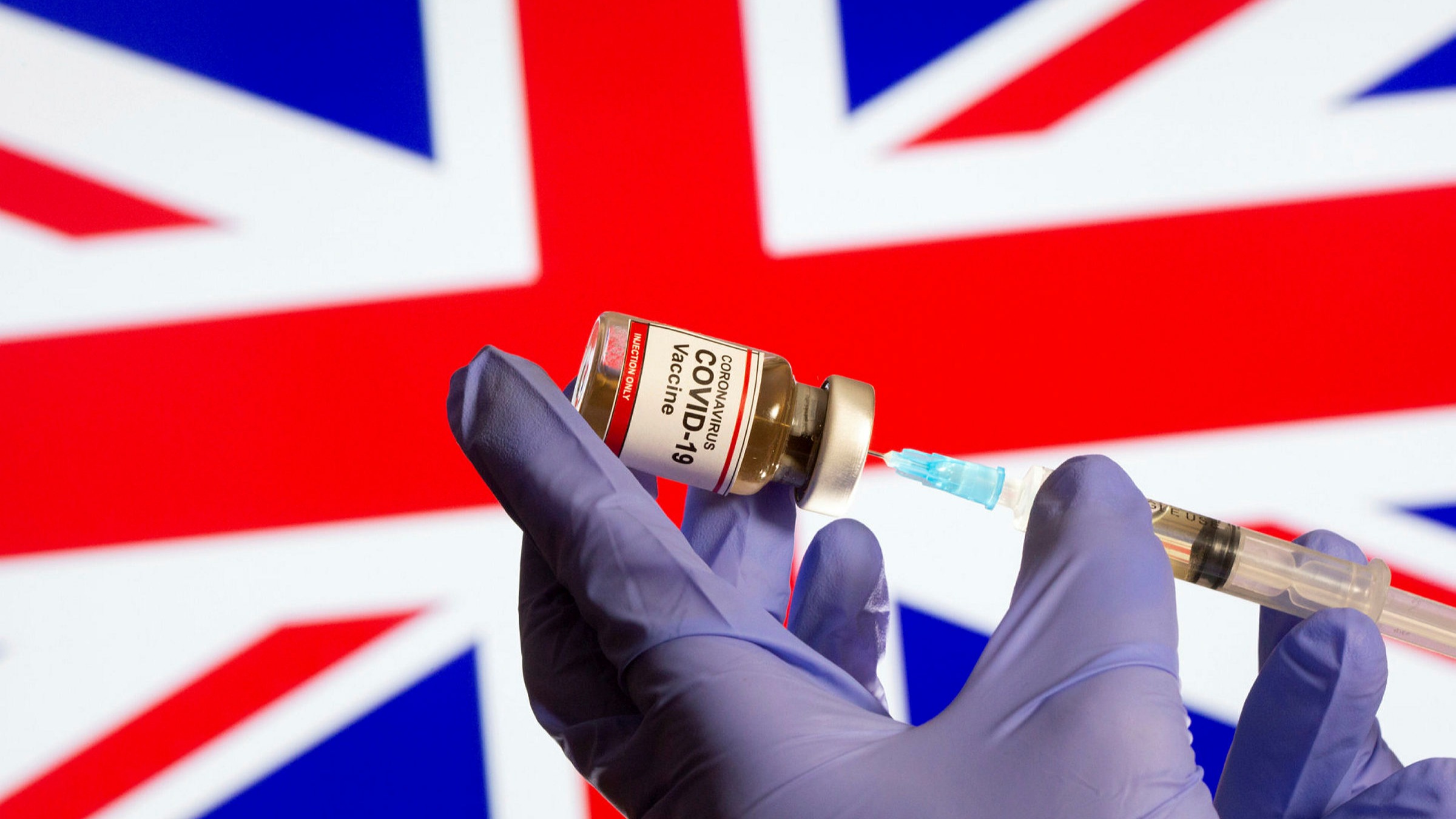

 Caribbean News7 days ago
Caribbean News7 days ago
 Caribbean News7 days ago
Caribbean News7 days ago
 Caribbean News1 week ago
Caribbean News1 week ago
 Caribbean News7 days ago
Caribbean News7 days ago
 Bahamas News7 days ago
Bahamas News7 days ago
 News7 days ago
News7 days ago
 Bahamas News1 week ago
Bahamas News1 week ago
 News7 days ago
News7 days ago
